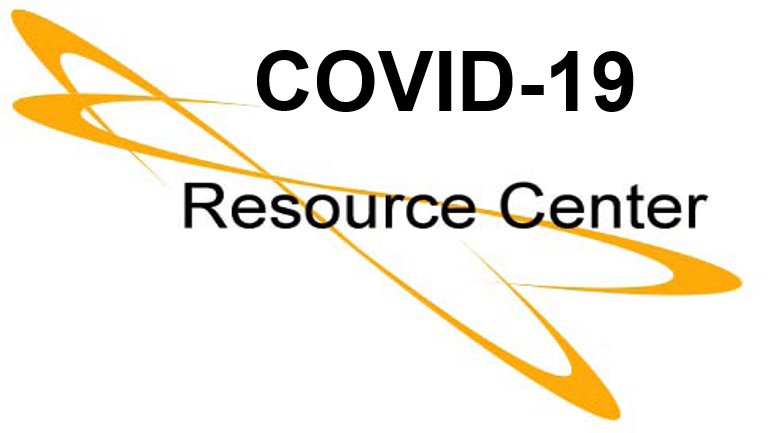As we previously have covered earlier this week, Congress enacted and the President signed on March 27, the CARES Act that, among other things, seeks to provide material financial assistance to small businesses. First, we addressed various applicable provisions of the Act and companies eligibility for the PPP Loan Program (Are You Eligible for a Small Business Loan under the CARES Act?). Then, we provided an alert on the first Treasury Department’s guidance issued last week on certain key aspects of the Act, the PPP Loan Program, and the new sample application form (Timely Additional Guidance on the New SBA Paycheck Protection Loan Program). In the interim, federal government agencies, financial institutions and millions of small businesses have been scrambling to kick off this significant loan program with less than gold star results so far. That said, the grade school saying of the “early bird gets the worm” applies here as the Loans are “first-come, first-served” and hopefully those small businesses in need of such funding are well into preparing the information necessary for such loans and/or are already meeting with their SBA-approved lenders.
At the same time, information critical to the PPP Loan Program is being generated almost daily, if not hourly. In that regard, late last Thursday, the Treasury Department (Treasury) issued its first formal interim final rule (PPP Interim Final Rule or Rule). Given the emergency nature of the PPP Loan Program, Treasury waived the usual comment period on the Rule as well as the typical 30-day delayed effective date, so this Rule is effective immediately. The Rule applies to any applications made under the PPP Loan Program through June 30, 2020. The PPP Interim Final Rule seeks to clarify certain important provisions of the PPP Loan Program. Then, late this past Friday, the SBA released a supplement to the PPP Interim Final Rule that addresses principally its affiliation rules as they will apply to the PPP Loan Program. This supplement is also effective immediately and applies to any applications made to the Program through June 30, 2020. True to form, however, there still remain unclear aspects of the Program and application process which makes it critical for borrowers to closely evaluate the CARES Act itself, the PPP Interim Final Rule as well as the form Application itself and work with their advisors in concluding what best meets their needs.
1. The PPP Interim Final Rule:
The Rule is detailed over some 31-pages. We summarize some of the more pertinent portions of this Rule below that are different from or were not specifically mentioned as such in the Act or Treasury’s previous Guidelines:
Application Forms Needed: What had been a sample form is now the official SBA Form 2483 found here. Additionally, your lenders are likely to require documentation verifying your company’s payroll and possibly additional documentation which you should verify with your particular lender.
Lending Benchmarks: Lenders are instructed to rely on your good faith certifications (of which there are a series of them in the Application) in determining your borrowing eligibility.
Interest Rate: This has been fluctuating since the Act was enacted but the Rule indicates it shall be 1% and shall mature in 2 years.
Interest Accrual: No payments on the Loans are necessary for the first six months after an approved Loan is disbursed to a borrower. Interest, however, will accrue during this initial 6-month deferment.
Loan Forgiveness: The PPP Loan Program provides that the Loans, both as to principal and interest, are subject to being forgiven and not having to be repaid. The amount that is subject to being forgiven, however, is based on the borrower’s level of use of the Loan proceeds to pay what are deemed to be forgivable purposes (including payroll costs, costs related to the continuation of group health benefits, mortgage interest, rent and utility payments, interest on any other debt obligations incurred prior to 2/15/20, and/or the refinancing of an SBA Disaster Relief loan made between 1/31/20 and 4/3/20), and the borrower maintains employee and compensation levels. It is expected that at least 75% of the PPP Loan proceeds will be used to cover payroll costs.
Businesses Ineligible for PPP Loans: There are a whole series of entities that the SBA deems ineligible for the PPP Loan Program as previously defined in 13 CFR section 120.110 and the SBA’s Standard Operating Procedure 50 10, subpart B, chapter 2, and these include:
- Financial businesses principally engaged in the business of lending, including banks, finance companies and factoring companies. Pawn shops though may, in some circumstances, qualify
- Loan packagers which earn more than a third of their gross annual revenue packaging SBA loans
- Businesses in which the lender or CDC, or any of its “Associates,” owns an equity interest
- Life insurance companies
- A household employer (i.e., an individual who employs household employees such as nannies or housekeepers)
- Passive businesses owned by developers and landlords that do not actively occupy or use the assets acquired or improved with the loan proceeds, with the exception of Eligible Passive Companies as defined under 13 CFR section 120.111
- Businesses located in a foreign country, although businesses physically located in the United States owned by a foreign country may qualify
- Private clubs and businesses that limit the number of their members for any reason other than capacity
- Pyramid sale distribution plans
- Businesses principally engaged in teaching, instructing, counseling, or indoctrinating religion or religious beliefs, whether in a religious or secular setting
- Government owned entities, but not excluding businesses owned or controlled by Native American tribes
- Businesses that derive more than one-third of their gross annual revenues from legal gambling operations
- You, or any business owned or controlled by you or any of your owners, that has obtained a direct or guaranteed loan from the SBA, or any other federal agency, that is presently delinquent or has defaulted within the last 7 years and caused a loss to the government
- Businesses engaged in “illegal activities,” under federal, state or local laws, and since the federal government deems marijuana to be illegal, companies involved in marijuana businesses legalized by certain states are ineligible, though companies exclusively involved in the hemp industry instead may qualify
- Businesses with an “Associate” who is either incarcerated, on parole, on probation, or has been indicted for a felony or a crime of “moral turpitude”
- Businesses that (1) present live performances of a prurient sexual nature or (2) derive directly or indirectly more than de minimis gross revenue from the sale of products or services, or the presentation of any depictions or displays, of a prurient sexual nature
Refinancing of Disaster Loans Previously Approved by the SBA: If a small business previously applied for and was approved for a SBA disaster loan provided between January 30, 2020 and April 3, 2020, it must refinance that loan as a PPP Loan if the disaster loan had been used to cover payroll costs.
At the same time, the PPP Interim Final Rule contains a series of answered guidance questions that largely reiterate already existing information/guidance with respect to, among other things, eligibility requirements, the calculation of the maximum amounts that a small business may borrow, the use of e-signatures or consents if a borrower has multiple owners (the answer is “Yes”), etc.
2. The PPP Loan Program Company Affiliation Guidance:
The detailed affiliation standards within 13 CFR 121.103 do not apply to PPP Loan considerations; instead, they are subject to the affiliation rule contained in 13 CFR 121.301. The SBA’s rules applicable to company affiliation status for qualification under the PPP Loan Program are used to determine the number of employees of a borrowing company applying for a PPP Loan. Related companies are considered to be “affiliates” of one another if one controls or has the power to control the other, or a third party controls or has the power to control each of the entities. It is irrelevant if the control is actually exercised, just the power to do so must exist.
The SBA has indicated that four “tests” for affiliation based on ‘control’ will be applied to determine if an affiliation exists for purposes of the PPP Loan Program, including:(1) based on ownership, (2) arising under stock options, convertible securities, and agreements to merge, (3) based on common management, or (4) based on an “identity of interest.” Additional information on each of these tests can be found in the SBA’s Guidance dated April 3.
There is a religious exemption. If the relationship between one faith-based organization to another is based on a religious teaching or belief, or otherwise constitutes a part of the exercise of religion, such affiliation will not be considered for purposes of qualifying under the PPP Loan Program.
Additionally, there is a waiver from the affiliation rules for qualification purposes in a few circumstances for any business: (1) with less than 500 employees that, as of the date on which its loan is disbursed to it, is assigned a NAICS code beginning with 72 (these are principally industries falling into the Hospitality Accommodation Industry such as hotels, casinos, etc. as well as Food Service and Drinking Places), (2) that operates as a franchise for which the SBA has assigned a franchise identifier code, and (3) which receives financial assistance from an SIBC licensed under section 301 of the Small Business Investment Act of 1958.
As is apparent, the rules relevant to qualifying for and utilizing a PPP Loan can be complex. Barton LLP has attorneys well versed in each of the SBA loan programs, the application process and other beneficial provisions of the CARES Act. We look forward to working with you and on your behalf and assisting you and your business through these new challenging times.
Related Barton Client Alerts
Timely Additional Guidance on the New SBA Paycheck Protection Loan Program
Are You Eligible for a Small Business Loan Under the CARES Act?
BACK TO BARTON COVID-19 RESOURCE HOMEPAGE


